4 cinereous vultures have simply been launched within the Iberian Highlands in Spain, as a part of an ongoing reintroduction programme. The restoration of this iconic and ecologically essential fowl as a breeding species will improve the well being of the rewilding panorama and assist nature-based financial improvement.
Markus Varesvuo / Wild Wonders of Europe
In direction of a wilder Iberian Highlands
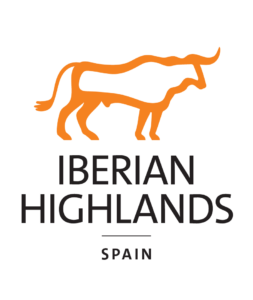 4 extra cinereous vultures have been launched within the Iberian Highlands rewilding panorama in Spain, as the newest stage in an ongoing reintroduction programme. Having been sourced from wildlife restoration centres throughout the Castilla-La Mancha area, the birds have been housed in a specifically constructed adaptation aviary positioned within the Alto Tajo Pure Park for a number of months previous to being let loose. The return of this majestic keystone species to the Iberian Highlands will contribute to the realisation of a wilder and more healthy Iberian Highland panorama.
4 extra cinereous vultures have been launched within the Iberian Highlands rewilding panorama in Spain, as the newest stage in an ongoing reintroduction programme. Having been sourced from wildlife restoration centres throughout the Castilla-La Mancha area, the birds have been housed in a specifically constructed adaptation aviary positioned within the Alto Tajo Pure Park for a number of months previous to being let loose. The return of this majestic keystone species to the Iberian Highlands will contribute to the realisation of a wilder and more healthy Iberian Highland panorama.
“This newest launch is an thrilling and vital step ahead within the programme, bringing us nearer to the restoration of the cinereous vulture within the Iberian Highlands,” says Rewilding Spain group chief Pablo Schapira. “These iconic scavengers play a necessary position within the circle of life, whereas they improve the worth of the panorama for native communities by boosting nature-based tourism.”
The cinereous vulture reintroduction programme, which started in 2020, is run by the Castilla-La Mancha regional authorities and the Alto Tajo Pure Park, with work on the bottom carried out by Rewilding Spain and Spanish NGO Terra Naturalis. With the newest launch, 21 cinereous vultures have now been let loose by means of the programme, which goals to revive a resident, breeding inhabitants of the birds within the Alto Tajo and Serranía de Cuenca areas. A complete of between 40 and 50 birds will finally be launched.
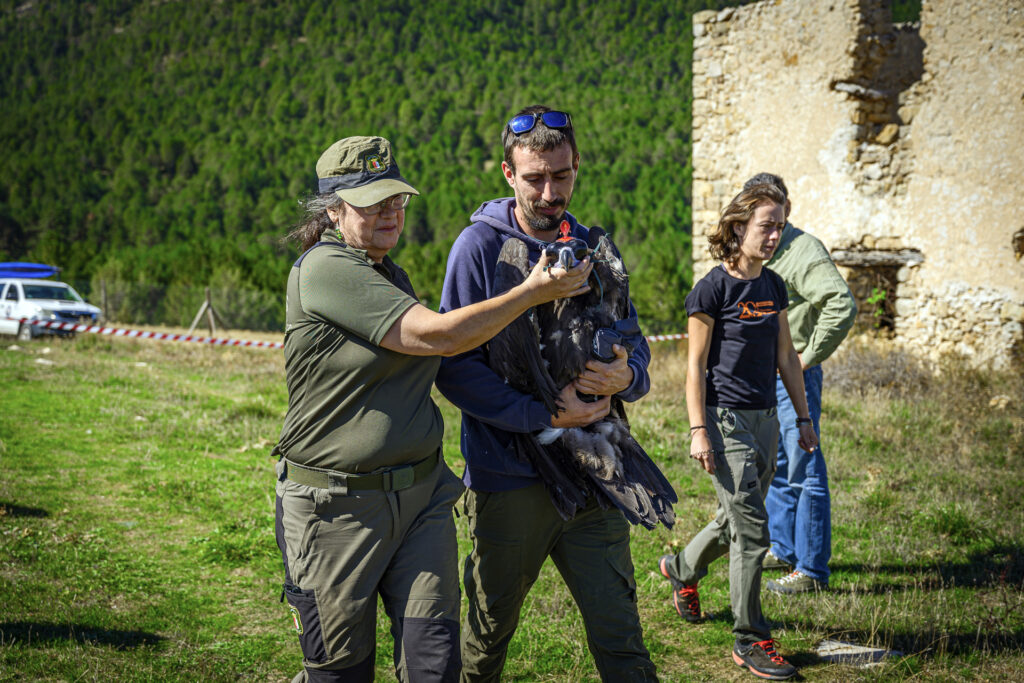
RICARDO RUBIO
Enabling breeding success
In contrast to the griffon vulture, which nests on cliffs, cinereous vultures make their properties within the tops of timber. This makes the species delicate to the degradation and disappearance of pure forests. The protected standing of the Alto Tajo and Serranía de Cuenca forests imply the birds ought to have the required situations to determine colonies.
The acclimatisation of the cinereous vultures in an area aviary helps the launched birds settle within the space. Greater than 20 nesting platforms have been in-built native timber, two of which have life-size decoys. To bolster the connection of the vultures with the native panorama, six synthetic feeding stations have additionally been established as a part of the reintroduction programme. These are frequently equipped with the carcasses of domesticated livestock from native farms.
In an excellent world, vultures throughout Europe would feed solely on the carcasses of untamed animals. Nevertheless, a decline in wildlife populations means livestock carcasses are sometimes a vital supply of meals. That is the case within the Iberian Highlands, the place extensively grazed livestock far outnumber free-roaming wild herbivores similar to deer. The Rewilding Spain group are overseeing the continued releases of untamed and semi-wild herbivores, similar to horses and Tauros, with the intention of accelerating the availability of naturally occurring carcasses to the vulture species within the Iberian Highlands. Along with the cinereous vultures, this additionally contains griffon and Egyptian vultures.
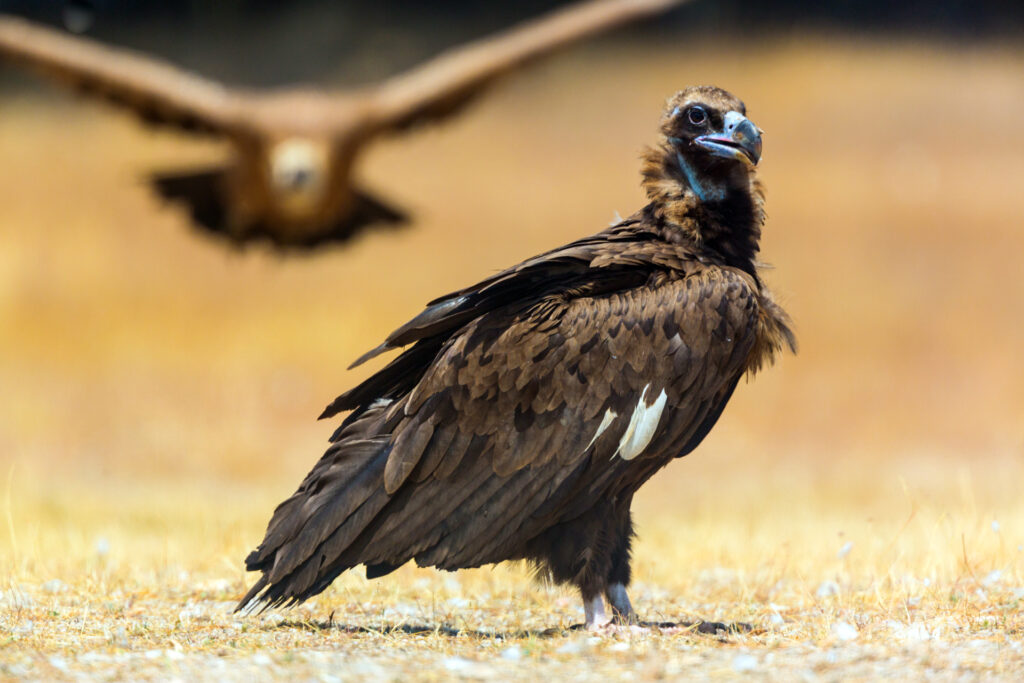
Juan Carlos Muñoz / Rewilding Europe
Constructive indicators
Subsequent spring might be a key interval for the cinereous vulture reintroduction programme, as it is going to be the primary time that beforehand launched birds have reached breeding age.
“That is the start line for the birds to pair up,” explains Ángel Vela, Managing Director of the Alto Tajo Pure Park. “A number of vultures have already primarily based themselves within the native panorama, whereas some birds from present colonies in different areas have additionally been noticed. This can be a promising signal for the long run, and we’re preserving our fingers crossed for breeding success.”
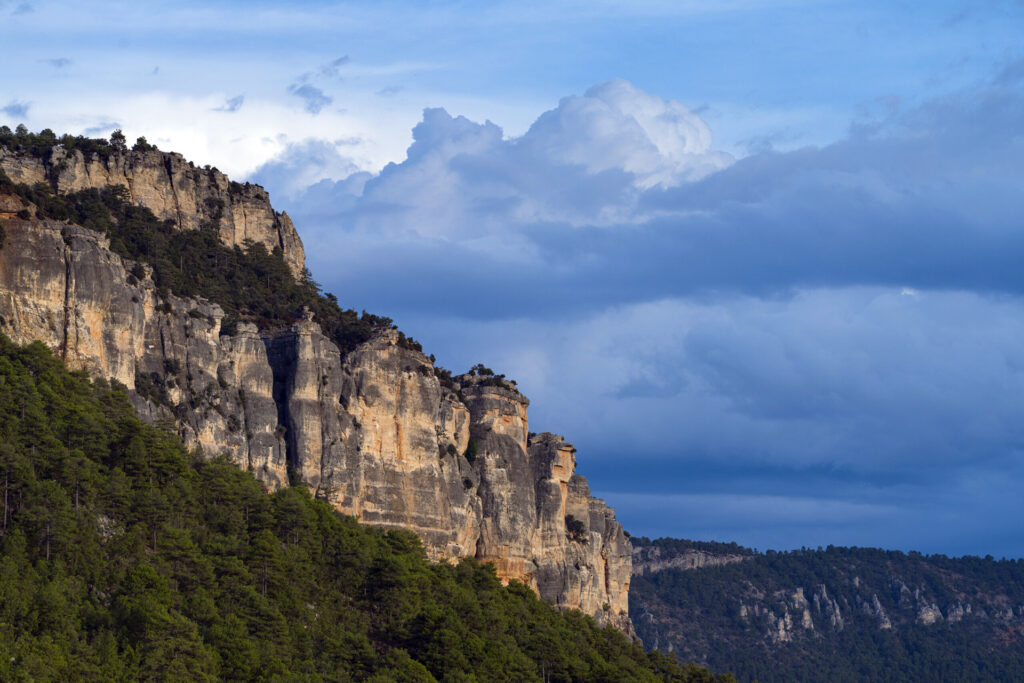
Juan Carlos Muñoz Robredo / Rewilding Europe
Protecting observe
A month earlier than their launch, the 4 cinereous vultures have been tagged with GPS transmitters, that are very gentle, solar-powered gadgets that allow very exact monitoring. These will permit the reintroduction group to watch the motion and behavior of the birds. The tagging was carried out with the assist of Víctor García Matarranz, a specialist from the Ministry for Ecological Transition and the Demographic Problem (MITECO), and his group.
GPS transmitters fitted to vultures already launched by means of the programme have present that the birds have travelled broadly throughout Spain. Nevertheless, the bulk proceed to spend most of their time within the Iberian Highlands.
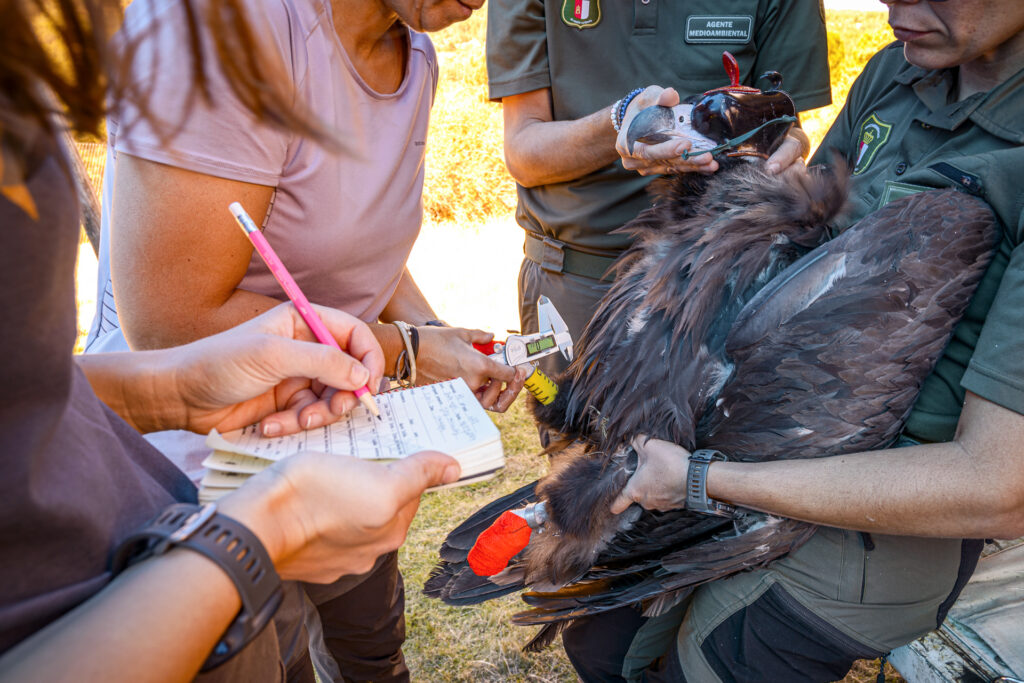
RICARDO RUBIO
Invaluable assist
Rewilding Europe’s work in our rewilding landscapes is supported by a variety of extremely valued companions. We’d significantly prefer to acknowledge these offering core funding – notably the Ecological Restoration Fund, the Dutch Postcode Lottery, WWF-Netherlands, and Arcadia. Their longstanding assist performs a vital position in enabling us to ship and scale up rewilding affect.


















